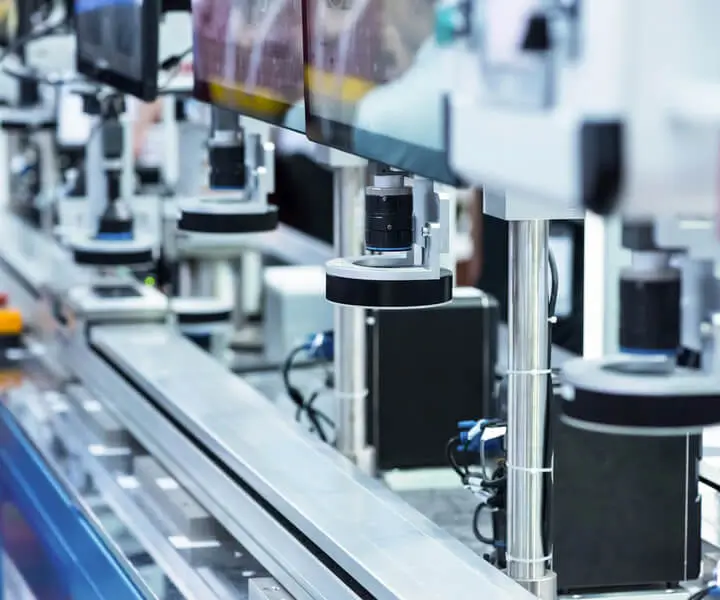The Evolution of CNC Servo Motors: Powering Precision in Modern Industry
In today’s rapidly advancing manufacturing landscape, CNC (Computer Numerical Control) machinery stands at the forefront of automation, driven by the quest for precision, speed, and reliability. Central to this technological revolution are CNC servo motors — small but mighty components that deliver exact control and dynamic performance necessary for intricate machining, robotics, and automation systems.

Understanding CNC Servo Motors
At its core, a CNC servo motor is a specialized electromagnetic device that converts electrical energy into precise mechanical motion. Unlike traditional motors, servo motors are equipped with feedback systems—usually encoders—which continuously monitor the motor’s position, velocity, and torque. This instant data loop allows for high accuracy and rapid responsiveness, qualities essential for complex machining tasks and automated processes.
Servo motors can be categorized broadly into AC (alternating current) and DC (direct current) types, with AC servo motors being more prevalent in industrial settings due to their robustness and efficiency. These motors are integrated with sophisticated control units that interpret commands from CNC controllers and adjust motor output in real-time, enabling intricate and synchronized movements.
Why the Demand is Growing
The surge in demand for CNC servo motors correlates with the evolution of manufacturing into smarter, more flexible production lines. Industries such as aerospace, automotive, electronics, and medical devices rely heavily on high-precision machining, where even the slightest deviation can result in defective products.
Moreover, the emergence of Industry 4.0, with its emphasis on interconnected and automated systems, fuels the need for servo motors with enhanced communication capabilities, energy efficiency, and adaptability. As machinery becomes more intelligent, the components powering these systems, including CNC servo motors, must keep pace with the demands for higher performance and customization.
Key Factors in Selecting CNC Servo Motors
For manufacturers and engineers, choosing the right servo motor isn’t merely about horsepower or size; it’s a strategic decision that involves multiple considerations:
Precision and Accuracy: High-resolution encoders and low backlash ensure minimal error margins. Response Time: Quick acceleration and deceleration are vital for efficient operation. Torque and Power Density: Depending on the application, the motor must deliver adequate torque without excessive size or weight. Control Compatibility: Compatibility with existing CNC control systems and communication protocols like EtherCAT, ProfiNet, or CANopen is critical. Reliability and Durability: Robust construction to withstand industrial environments, including dust, heat, and vibration. Energy Efficiency: Reducing power consumption aligns with sustainable manufacturing goals.
Leading Manufacturers and Their Innovations
Several prominent players have established themselves as pioneers in CNC servo motor manufacturing. Companies like Siemens, Panasonic, Mitsubishi Electric, Schneider Electric, and Yaskawa are widely recognized for their advanced offerings that blend performance with innovation. New entrants and specialized manufacturers are also increasingly influential, often focusing on niche applications or custom solutions.
These manufacturers are investing heavily in R&D, developing features like:
Integrated Controllers: Combining motor and controller into a single unit for compact design. Smart Servo Motors: Embedded sensors and IoT connectivity for predictive maintenance and real-time monitoring. Enhanced Materials: Use of high-strength, lightweight materials for improved efficiency and lifespan. Customization Options: Tailoring torque curves, sizes, and communication features to specific industries and applications.
The Role of Quality and Certification
Quality assurance is a non-negotiable aspect for CNC servo motors. Top manufacturers adhere to international standards such as ISO, IEC, and CE certification, ensuring their products meet strict safety, environmental, and performance criteria. This level of quality reduces downtime, maintenance costs, and the risk of catastrophic failure, safeguarding investment and productivity.
Challenges in the Industry
Despite the advances, the CNC servo motor industry faces several challenges. Supply chain disruptions can delay production, especially when sourcing high-precision materials or electronic components. Additionally, the rising complexity of motors demands ongoing training and technical expertise from manufacturers and users alike.
Standardization remains an ongoing issue—while many manufacturers offer compatible solutions, differences in control protocols and specifications can limit interoperability. To address this, industry bodies and major companies are working toward greater standardization and open communication protocols.
End of Part 1.
Established in 2005, Kpower has been dedicated to a professional compact motion unit manufacturer, headquartered in Dongguan, Guangdong Province, China.




































